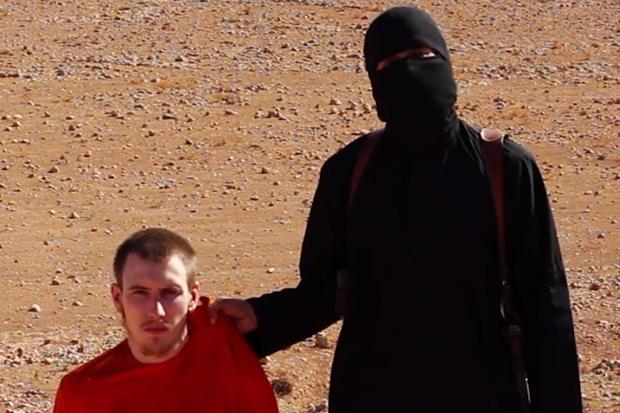The Myth of ‘Deradicalizing’ Islamic Radicals
by Tarek Fatah
The Toronto Sun
November 25, 2014
Originally published under the title “The Myth of ‘De-radicalization’ of Islamic Radicals.”
On Monday, I appeared before the Senate Standing Committee on National Security and Defence. The committee is studying the question of security threats to Canada as well as ‘deradicalization’ efforts being promoted by the RCMP [Royal Canadian Mounted Police].
I suggested to the senators that ‘deradicalization’ initiatives by Canada’s security agencies were doomed to failure because the very men and women partnering with the RCMP in this exercise were not just part of the problem, but in many ways the cause of radicalization.
For example, in mosques across Canada, our Friday congregation begins with a prayer to Allah for a victory of Muslims over the kufaar (Christians, Jews and Hindus). In such a climate, relying on Islamic religious clerics and Islamists to fight radicalization is like employing the fox to guard the chicken coop.
Some senators looked at me with incredulity, taken aback by what I had said.
I suggested to the senators that some Islamic clerics are taking us for a ride. For example, a Canadian cleric, a white convert to Islam who is touted as a ‘deradicalization counsellor’ by the RCMP, was last week in the Gulf Emirate of Qatar, holding meetings with the leadership of the Taliban.
On his Facebook page, this RCMP deradicalization counsellor wrote: “I am meeting with the head of the Taliban Embassy in Doha, Qatar and we are working on a treaty that would state clearly that the Taliban (mujahideen) don’t condone vigilante violence, criminal acts or terrorism in non-Muslim countries.”
Deradicalization, I told the senators, was just an empty meaningless word. The real challenge was to prevent radicalization and this required confronting the rhetoric of political Islam rather than appeasing those who fanned religiosity and made Muslims believe their first loyalty was to Islam, not their community of fellow Canadians and Canada.
Contrary to conventional wisdom, most Muslim Canadians do not consider their mosque imams to be their community leaders.
“To ask ‘former radicals’ to deradicalize radical Islamists is like asking Marxists to convert Communists into liberal democrats,” I told the committee.
It also seemed the senators were surprised to hear that, contrary to conventional wisdom, most Muslim Canadians do not consider their mosque imams to be their community leaders. In fact, most Muslims are not linked to any mosque whatsoever.
One senator asked, if not the clerics, who were the real leaders of the community?
She seemed surprised when I said “members of parliament” and those elected to lead us.
The challenge, I said, is to prevent radicalization and the way to do so was to:
1. Lay hate speech charges against any Muslim cleric who hides behind religious rights as he attacks and demonizes other religious faiths or people of no faith at all.
2. Every mosque must be monitored for such hate speech where the word ‘kuffar’ is invoked to hide the real target — Hindus, Christians and Jews.
3. Any mosque indulging in active politics must have its charitable status revoked.
4. Donations of more than $20 at all religious institutions must be made by cheque or credit card to cut off the possibility of money laundering.
5. Ally with anti-Islamist Muslims from among the victims of Islamist oppression — the Kurds, Baloch, Darfuris and Iranian exiles.
6. Treat the PKK (Kurdish Workers Party) and the MeK (Iranian Resistance) as allies, not adversaries.
And finally I recommended that immigration from Pakistan, Somalia, Iran, Iraq and Syria must be suspended until Canada can be assured that security documents, identity papers and university degrees cannot be bought on the black market or from state agencies.
Tarek Fatah is a founder of the Muslim Canadian Congress, a columnist at the Toronto Sun, host of a Sunday afternoon talk show on Toronto’s NewsTalk1010 AM Radio, and a Robert J. and Abby B. Levine Fellow at the Middle East Forum. He is the author of two award-winning books: Chasing a Mirage: The Tragic Illusion of an Islamic State and The Jew is Not My Enemy: Unveiling the Myths that Fuel Muslim Anti-Semitism.



















